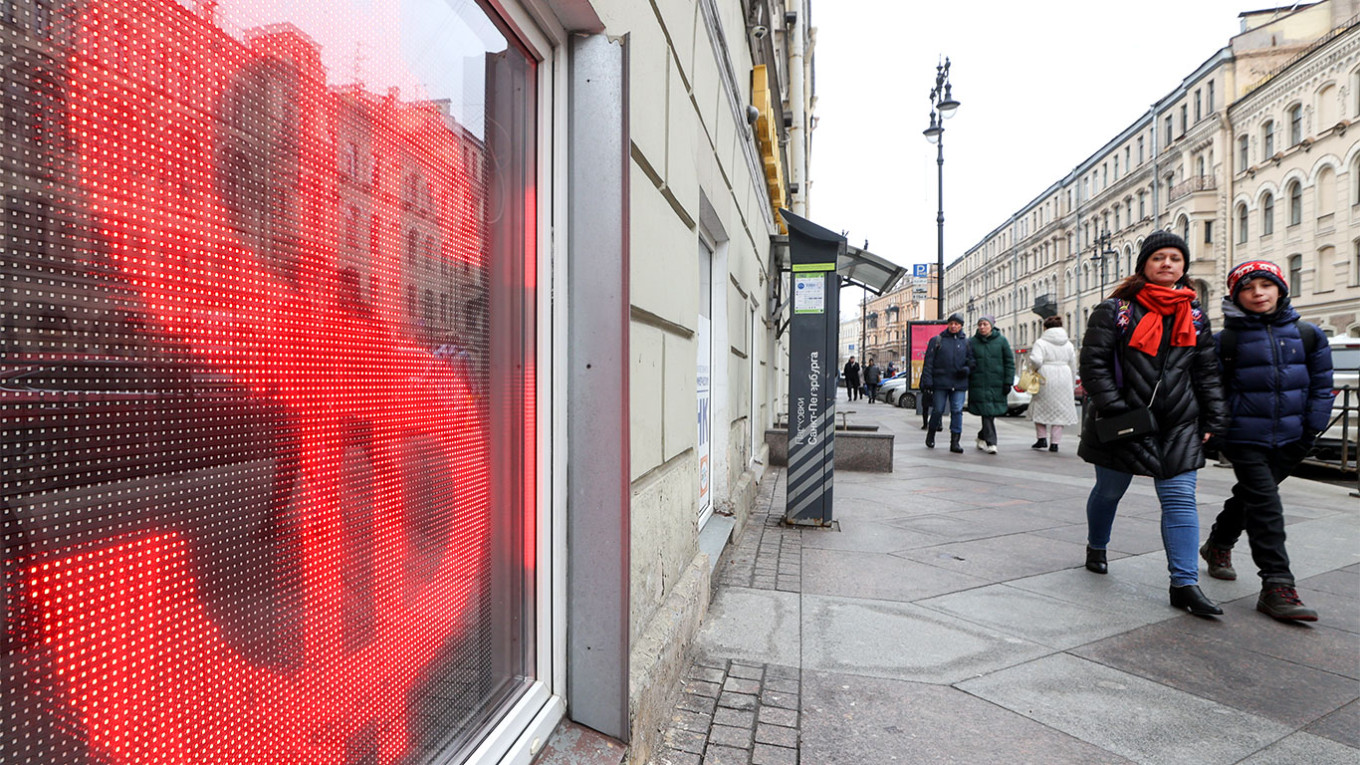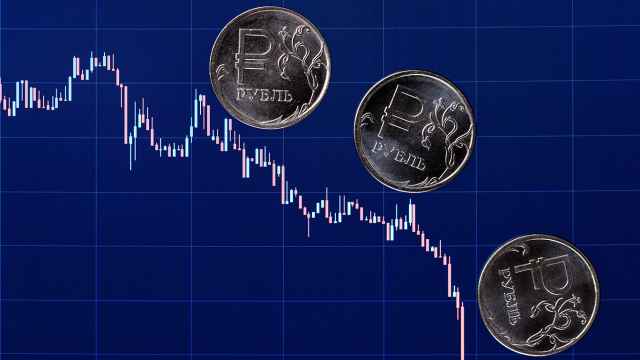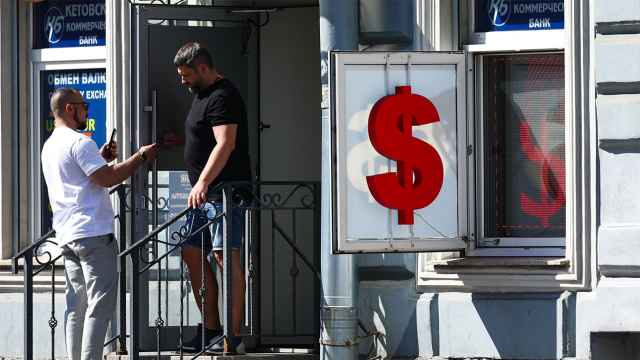After months of relative stability, the Russian ruble continued to weaken rapidly against major currencies on Friday, a trend that analysts say has been spurred by increased imports and a surge in foreign capital outflows.
This week the Russian currency slumped to its lowest level since last April. On Friday it was trading above 83 rubles to the dollar, and more than 91 rubles against the euro, according to data published by the Moscow Stock Exchange.
Analysts previously attributed the ruble's weakening to the end of the Russian tax year, when major exporters typically trade foreign currency for rubles to meet their payment obligations to the state budget, the RBC business daily said.
At the same time, the ruble is facing pressure from trade inflows as imports gain momentum and exports continue to decline.
But President Vladimir Putin's recent approval of a deal that permits British energy giant Shell to offload its stake in the Sakhalin-2 oil pipeline project in Russia's Far East has added to the mix of forces pulling down on the ruble.
The arrangement allows Shell to transfer over 94 billion rubles ($1.2 billion) in proceeds from its pipeline project sale abroad. Novatek, Russia's second-largest natural gas producer, is set to acquire the stake as part of the deal.
Scores of foreign companies have pulled out of Russia since Moscow launched its invasion of Ukraine last year despite being banned from selling their assets in Russia without approval from a special government commission.
Bloomberg Economics estimates that foreign companies leaving Russia last year collectively sold assets worth between $15 billion and $20 billion.
Around 2,000 foreign companies are waiting to receive permission from the Russian government to sell their Russia-based operations and repatriate capital abroad.
“Judging by the low liquidity of the currency market, but also the lack of transparency in approving these kinds of deals, all of this will lead to increased volatility against the dollar and euro,” the economist Gregory Bazhenov wrote on Telegram.
Russian Finance Minister Anton Siluanov did not mention capital outflows caused by the exodus of foreign companies as among the factors contributing to the ruble’s recent depreciation, arguing instead that a slump in export revenues and increased imports were to blame.
“The change in the exchange rate is connected to the trade balance. Therefore, these changes are connected with either an increase in imports or a slight decrease in export revenues. In recent months we’ve seen trends in both directions,” he told state media on Thursday.
Siluanov expressed hope that the ruble would strengthen again once oil prices rise.
Market participants believe the Russian government favors a gradual weakening of the ruble, as it could potentially increase budget revenues without causing inflation. For this reason, they expect further depreciation of the currency.
“The ruble may well continue to decline — in the absence of interventions — with the prospect of reaching the range of 84.5-86.5 rubles per dollar in the next few weeks,” Chief Economist at Russ Invest, Harutyunyan Alexander, suggested Tuesday.
Since the February 2022 invasion of Ukraine, Russia’s oil export revenue has helped insulate the country from the immediate impact of sanctions.
The country pulled in an estimated $218 billion from oil exports in 2022, a 20% increase from the previous year. This influx of cash helped Moscow defend the ruble and shore up its hard currency reserves.
In February, the Central Bank of Russia relaxed currency controls for exporters in the non-commodity and non-energy sectors. The restrictions were introduced last year to prevent runaway capital flight and the rapid depreciation of the ruble.
A Message from The Moscow Times:
Dear readers,
We are facing unprecedented challenges. Russia's Prosecutor General's Office has designated The Moscow Times as an "undesirable" organization, criminalizing our work and putting our staff at risk of prosecution. This follows our earlier unjust labeling as a "foreign agent."
These actions are direct attempts to silence independent journalism in Russia. The authorities claim our work "discredits the decisions of the Russian leadership." We see things differently: we strive to provide accurate, unbiased reporting on Russia.
We, the journalists of The Moscow Times, refuse to be silenced. But to continue our work, we need your help.
Your support, no matter how small, makes a world of difference. If you can, please support us monthly starting from just $2. It's quick to set up, and every contribution makes a significant impact.
By supporting The Moscow Times, you're defending open, independent journalism in the face of repression. Thank you for standing with us.
Remind me later.






